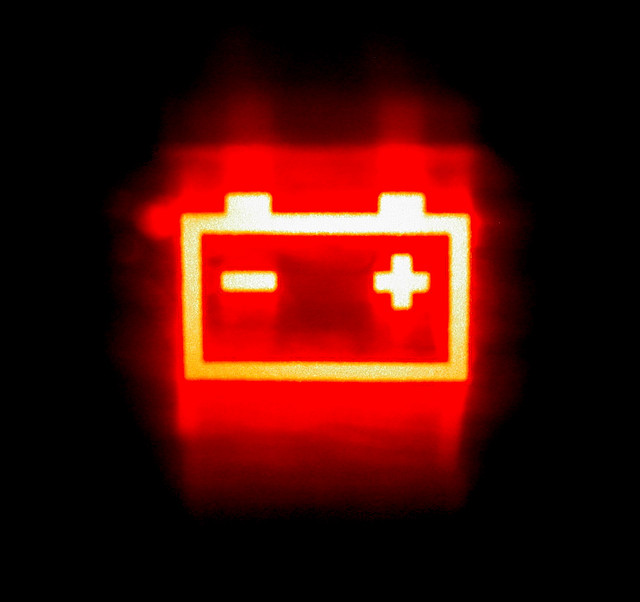Highlights
A quantum battery could turbocharge thanks to entanglement

Theoretical work shows that entanglement could increase the charging rate of a 'quantum battery' such that a bigger battery charges faster than a smaller one. Image: Flickr user Andy Armstrong, CC-BY-SA
Today you can buy an electric car that can go 170 miles after a half-hour charge. Could quantum technologies one day cut that wait?
Writing in the New Journal of Physics, CQT researcher Sai Vinjamapathy and his collaborators show that quantum batteries could charge faster than classical ones. It's a tantalising idea, although so far only on paper.
The team imagine a quantum battery to be made from an array of particles, such as atoms, which can exist in a low or high energy state. The atom is 'charged' when it absorbs energy to go from the lower to the higher energy state.
Sai and his colleagues show that quantum operations could transfer energy into the particles in a way that gets faster the more particles there are. More precisely, they show that the time to charge N particles can scale as 1/N – in other words, the bigger the battery, the faster it could charge.
The speed-up is possible because entanglement is created between the particles during the charging operation. The best you'd expect to be able do without entanglement is to keep the charging time constant as the battery gets bigger.
In the paper's acknowledgments, there's this small note: "The authors hope that this article will inspire Tesla Motors to start developing quantum batteries for their vehicle."
Tesla Motors is a California-based company led by entrepreneur Elon Musk that manufactures electric cars. It's their Model S car that can go 170 miles after a half-hour charge at a Tesla super-charger station (according to the company's website). Regular charging stations would involve a much longer wait.
If any firm were going to develop quantum batteries, one run by Elon Musk, who also founded the private space company SpaceX, would seem a good bet. But is a 'quantacell', as the researchers dub their system, really a practical proposal?
The paper is a first theoretical exploration of this new idea. "Regarding practicality, we believe that there is a more practical iteration of this idea that incorporates physically reasonable constraints, that will be implemented in the future" says Sai. A proof-of-principle demonstration could be possible.
There would still be a question of energy storage. As co-author John Goold, a CQT alumnus now at the The Abdus Salam International Centre for Theoretical Physics in Trieste, Italy, told Phys.Org, "The energies of quantum systems tend to be many orders of magnitude smaller than even the smallest energies used by day-to-day appliances".
To hold a practical amount of energy, the quantacell would have to be much bigger than the quantum systems researchers are able to control today.
The researchers began the work because of their interest in quantum thermodynamics, the study of energy transfer in quantum systems. They started the project after a conference in 2012, continuing to work on it over visits to Singapore by co-authors Felix Binder, of the University of Oxford, UK, and Kavan Modi, from Monash University, Australia.






